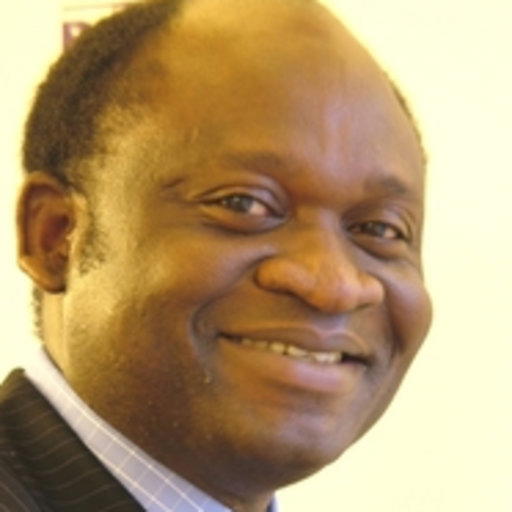
Bola Tinubu, Nigeria’s junketing president, chose the week Donald Trump, America’s ultra-protectionist president, unleashed a global trade war to go on a “working visit” abroad. As the world reeled from Trump’s tariff blitz, the deepest and most sweeping in a century, leaders of most other countries were hands on deck at home.
President Emmanuel Macron of France, where Tinubu was hibernating, actively reached out to his fellow European leaders to coordinate the EU’s response. The British prime minister, Sir Keir Starmer, spoke to parliament and met his cabinet to develop an action plan. Most other countries and their leaders similarly weighed their options. But wither Nigeria? Wither Tinubu?
Well, the Minister of Industry, Trade and Investment, Jumoke Oduwole, issued a pathetic statement! She said President Trump’s tariffs on Nigeria – 10 per cent flat tariff and 14 per cent “reciprocal” tariff – could cost Nigeria $6 billion annual exports to the US. She added: “For businesses in the non-oil sector, these measures present destabilising challenges to price competitiveness and market access.”
Continuing, she said: “SMEs building their business models around AGOA exemptions would face the pressures of rising costs and uncertain buyer commitments.” But what’s the solution? Is Nigeria prepared to forfeit $6 billion non-oil exports to the US? Should companies change their business models and forget the US, the world’s largest consumer market? Oduwole said Nigeria would take the matter to the World Trade Organisation, the same WTO that President Trump has utterly sidelined!
The Minister of Finance and Coordinating Minister of the Economy, Wale Edun, also spoke. He said the government’s Economic Team would meet over the Trump’s tariffs. As I write, there’s no evidence of such meeting; and if they met, what’s their solution? Just imagine Dr Ngozi Okonjo-Iweala as the Minister of Finance and Coordinating Minister of the Economy. She would be frantically reaching out to people internationally and actively coordinating activities at home, as she did during the oil price crash of 2014 when crude oil prices declined dramatically and rapidly. Of course, she understands the world economy and how global economic crises impact countries. And, of course, she has long been a technocrat with huge international status. By contrast, Tinubu’s economic ministers are Lilliputians. They lack deep knowledge of international economics and lack international clouts.
But what about Tinubu’s response? Earlier this week, the presidency gleefully circulated a picture of Tinubu shaking hands with a Trump aide, with a story titled: “Tinubu discusses stronger Nigeria-US ties with Trump advisor.” The aide is Massad Boulos, Trump’s senior adviser for Africa. To be sure, Boulos, a Lebanese-born American, is important for three reasons. First, he advises Trump on Africa. Second, he lived and had strong business interests in Nigeria, where he was the CEO of SCOA Nigeria PLC. Third, his son, Michael, born in Nigeria, is married to Trump’s daughter, Tiffany. So, Massad Boulos is President Trump’s in-law. Clearly, therefore, he is potentially a good liaison between Nigeria and the US, assuming he has a special affinity with Nigeria, based on his strong connections with this country.
However, when it comes to international trade, on which President Trump’s approach is rumbunctious, transactional and reciprocal, Massad Boulos’s leverage is weak. Over the past week, several presidents and prime ministers have spoken to President Trump himself or to Scott Bessent, Treasury Secretary, or Howard Lutnick, Commerce Secretary, or Jamieson Greer, US Trade Representative, USTR. The stakes are too high, and the issues too deep, for a chance meeting with a presidential advisor to be a good response to President Trump’s tariff blitzkrieg. In an ideal world, Nigeria, the so-called “giant of Africa”, would have the ear of every major world leader and would be able to speak directly with Trump and any of his top economic ministers to advance not only Nigeria’s interests but Africa’s. However, truth is, beyond perfunctory diplomatic niceties, Nigeria has no influence relationship with the US.
But coming to Trump’s tariffs against Nigeria, what’s the context? Well, the context is global. President Trump declared April 2 as “Liberation Day”, when America would free itself from being “looted, pillaged, raped and plundered by friends and foes alike.” So, on that day, he announced two sets of tariffs. The first was a 10 per cent blanket tariff on all imports into the US. The second was a “reciprocal tariff” based on the US trade deficits with other countries. To calculate the “reciprocal tariff” for each country, the Trump administration took the US’s trade deficit in goods with that country, then divided it by the amount of goods imported into the US from that country. The resulting tariff equals half the ratio between the two. Based on that formula, Trump imposed a 14 per cent “reciprocal tariff” on goods imports from Nigeria.
Well, Nigeria’s 14 per cent “reciprocal tariff” was among the lowest. By comparison, Trump levied 50 per cent “reciprocal tariff” on Lesotho; 38 per cent on Botswana, and 30 per cent on South Africa. Nigeria’s “reciprocal tariff” is relatively low because, despite the fact that the US African Growth and Opportunity Act, AGOA, has existed since 2000, Nigeria is Africa’s least beneficiary of the tariff-free scheme. Nevertheless, as Oduwole said, Trump’s 10 per cent flat tariff and 14 per cent “reciprocal” tariff could cost Nigeria $6bn non-oil exports to the US annually. Surely, no country that is truly serious about diversifying its economy and promoting non-oil exports can be blasé about such a situation. But what is Nigeria’s response?
On April 9, President Trump suspended the “reciprocal tariffs” for 90 days to allow countries wishing to negotiate with the US to do so and said over 75 countries indicated they wanted to negotiate. Indeed, according to the Financial Times, many countries, including South Africa, were prepared to compromise to safeguard their exports to the US. But Nigeria is missing in action. Yet, Trump has long complained about Nigeria’s protectionism. In a tweet after President Trump announced the “reciprocal tariffs”, the USTR complained about Nigeria’s import bans on 25 items. Indeed, the USTR’s 2025 National Trade Estimate Report on Foreign Trade Barriers goes deeper, listing a wide range of tariff and non-tariff barriers that hinder US business interests in Nigeria. That is the crux of the matter, and no meeting with any Trump aide can change Trump’s mind unless Nigeria addresses his concerns.
In January, I wrote a piece titled “What Donald Trump’s second presidency means for Nigeria” (Vanguard, January 23, 2025). I said that if Nigeria wanted to placate President Trump, it must review its tariff and non-tariff barriers on US goods and buy more US products. That remains the case. Nigeria must choose between its own protectionism and access to the US, the world’s largest consumer market. Sadly, Tinubu thinks shaking hands with Massad Boulos will change that reality. No, it won’t!
The post Tinubu fiddles as Trump’s tariff war upends Nigeria’s economy, by Olu Fasan appeared first on Vanguard News.








